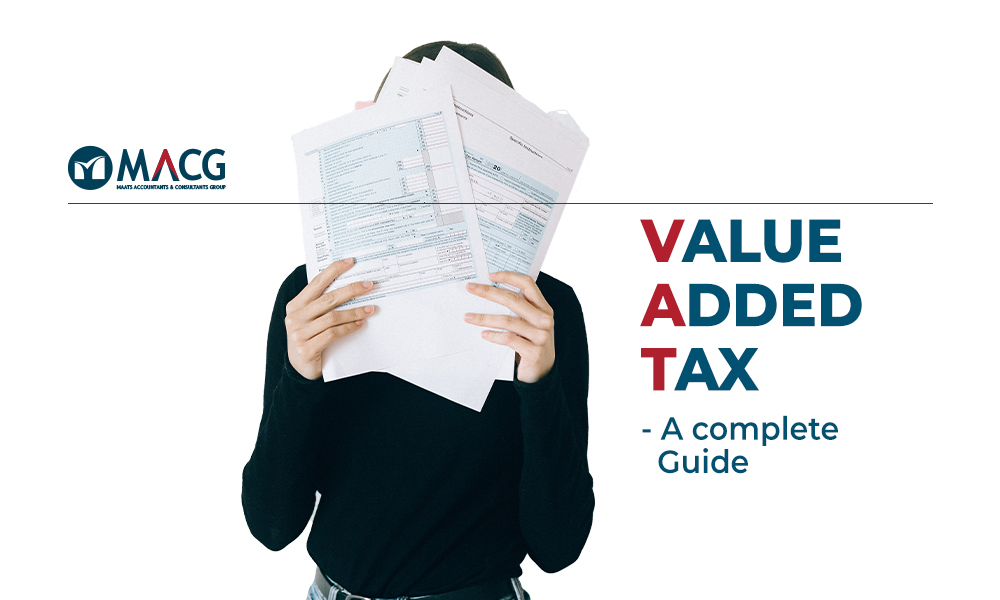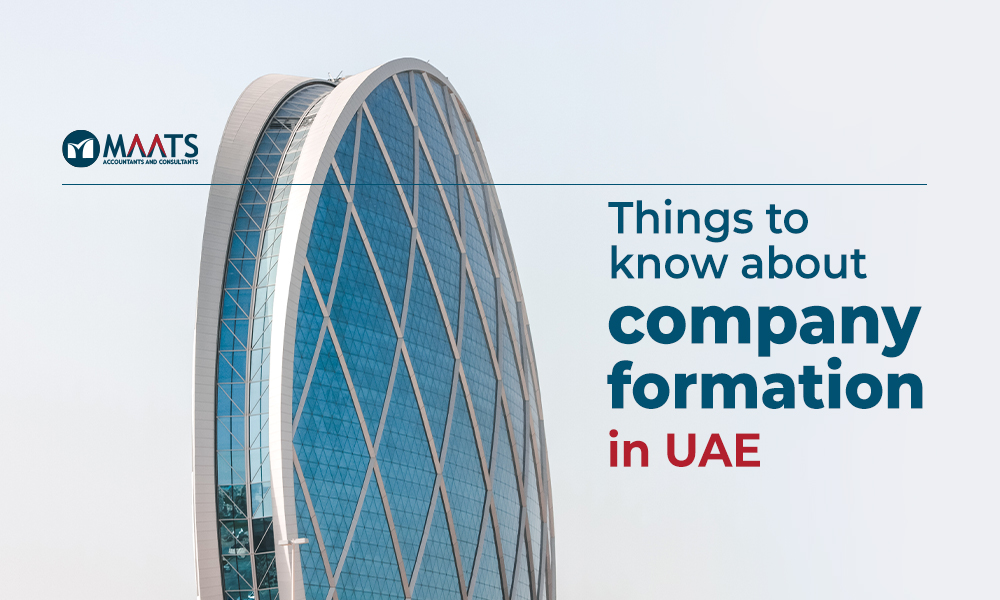Value Added Tax – A complete Guide For VAT Registration in UAE
What is VAT (Value Added Tax) Value-added tax is an indirect form of consumption tax levied on most supplies of goods and services that are bought and sold. VAT is charged at each step involved in the supply process. The Federal Tax Authority introduced Value Added Tax in Dubai on 1 January 2018 with the rate of VAT as 5 percent. VAT as a source of income is utilized to provide high-quality public services. Why VAT is implemented in UAE The motive behind the introduction of VAT in the UAE is to eliminate double taxation and the cascading effect of the sales tax structure, that existed. The UAE government offers the residents several public services paid from the government budget. VAT is to be added as a new source of income for the government to seamlessly continue the citizens and the residents with high-end services in the future. It can also help the government depend not only on the income collected from oil and other hydrocarbons. Criteria for VAT registration VAT applies to tax-registered businesses managed on the UAE mainland and in the free zones. A business in the UAE is expected to register for VAT if the taxable supplies and imports exceed AED 375,000 per annum. Businesses whose supplies and imports exceed AED 187,500 per annum are not subjected to mandatory registration but can voluntarily VAT registration in Dubai. Any business can register voluntarily if its expenses exceed this threshold for voluntary registration. Registering your business under VAT is recommended as such businesses enjoy the privilege of input tax deductions. Input VAT and output VAT Input VAT is the VAT which is included in the price you pay for eligible goods or services The output VAT is the VAT which is included in the price of selling eligible goods or services Zero-rated VAT supplies VAT does not apply to the supply of some goods and services, VAT is charged at zero rates. Generally, all exports of goods and services in the UAE apply to zero-rated supplies. Apart from this, education and healthcare services, and building residences for human occupation are also applicable for zero-rated VAT. 0% VAT will be charged for The export of goods and services outside the UAE Local supplies of some educational and related goods and services Local supplies of some healthcare services Supplies of certain investment-grade precious metals Supplies of crude oil and natural gas Exempt supplies in VAT Goods and services exempt from VAT are: Notified Financial Services Residential Buildings Bare Land Local Passenger Transport Services To consider the above goods and services exempt from VAT, specific conditions are to be fulfilled. VAT return After VAT registration in Dubai, Al registered businesses are expected to furnish tax returns a document containing the summary of all of the sales and purchases you made during a particular taxable period. The documents of imports, exports, and exempt supplies, along with the VAT paid or collected during transactions are to be included. This document must be provided based on your invoices and filed. Every taxpayer in the UAE is subjected to file a VAT return once every tax period. VAT refund After VAT registration in Dubai, As discussed, each business has to file a VAT return in Dubai, to get a VAT refund. Once you furnish the VAT return with details of sales, purchases, output VAT, and input VAT paid during the tax period, you can file a VAT return. The output VAT is the amount collected on sales and the input VAT paid to the supplier on the purchases. When the output VAT is greater than the input VAT, the balance will be VAT payable which is to be paid by the taxpayer to FTA. When the output VAT is lesser than the input VAT, the excess balance will be considered VAT refundable. In this case, the taxpayer can apply for a VAT refund. Taxable businesses are required to file VAT returns regularly and usually within 28 days of the end of the tax period. VAT audit in the UAE FTA conducts VAT audits to examine the commercial records of the business to identify whether or not it abides with the tax rules. All registered businesses are not subjected to VAT audit but the FTA picks the ones to be required for the VAT audit in Dubai. These are some circumstances that subject the business to a VAT audit. Late VAT registration Incorrect tax returns Tendency to late submit VAT returns Failure to issue invoices and tax documents Tax evasions Generally, the FTA will notify the taxable business of the VAT audit 5 business days in advance; if a prior notification would disturb the process, FTA won’t provide notice. The taxable person is expected to furnish VAT return documents and supporting evidence during an audit. Also, the relevant employees are to be present, and answerable to facilitate the process. MAATS for VAT Registration in Dubai Getting through the procedures of VAT registration in Dubai and other VAT services requires the close assistance of professional tax consultants. A well-versed team is here at MAATS to help businesses register for VAT and carry out all the upcoming steps without delay. We provide top-notch VAT consultation services in the UAE at a reasonable price range. We also offer services in corporate tax, company setup, audit and assurance, accounting, and bookkeeping to help your business flourish.



